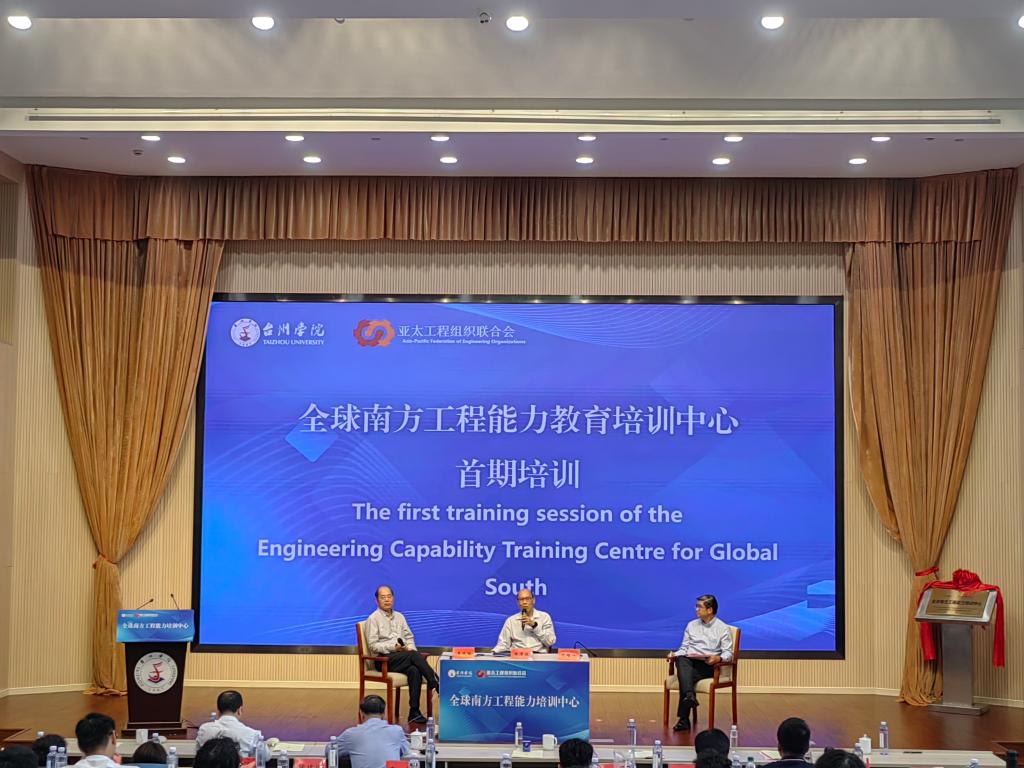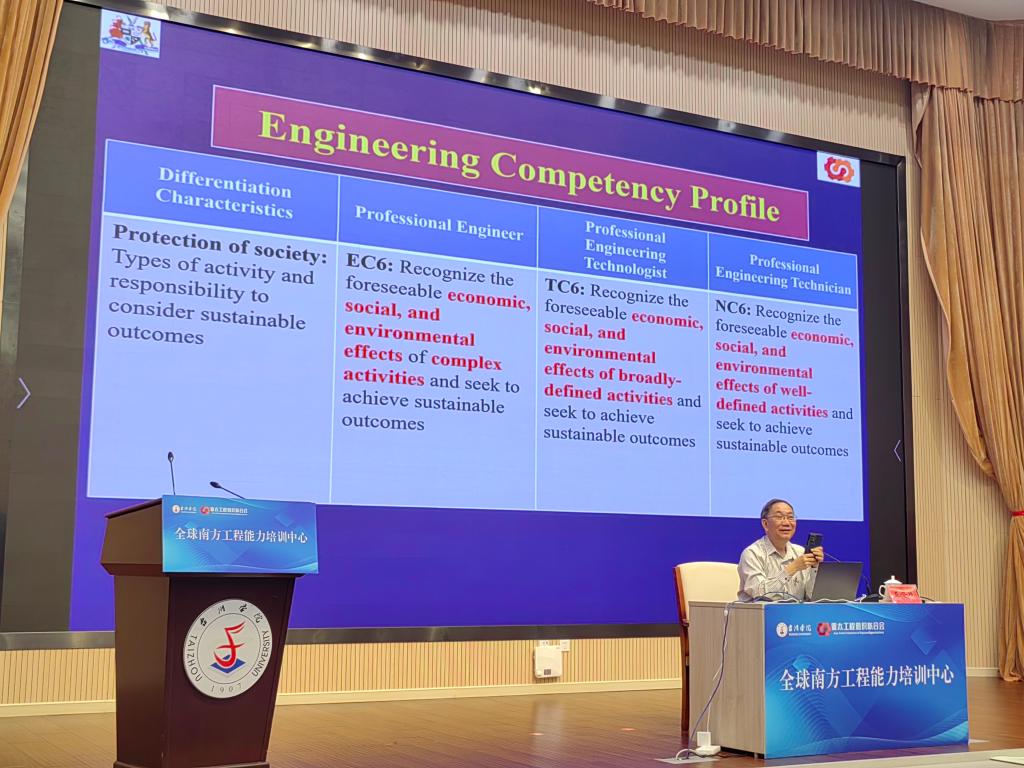TU successfully hosted the first training session of its new Global South Engineering Training Center on May 23rd and 24th at the university’s International Conference Hall. Renowned experts provided insights-packed sessions on “Best Practices in Engineering Education and Capacity Development” which include: Chen Yanzhen, Secretary-General, Federation of Engineering Institutions of Asia and the Pacific (FEIAP); Chai Sang Cheh, Chair, FEIAP Standing Committee on Engineering Education; Wang Qinglin, Chair, FEIAP Committee on Emerging Technologies & Professional Development / FEIAP China Committee. Vice President Li Junmin (Taizhou University) and Vice Chairman Yu Hongbiao (Taizhou Association for Science and Technology) co-chaired the event.

The First Training Session of the Engineering Capability Training Center for Global South
Professor Wang Qinglin outlined China’s Approach to Engineering Capacity Building, giving a big-picture view of the national system. Professor Chai Sang Cheh explored Educating Tomorrow’s Engineers, explaining key international agreements (FEIAP EEA, AAP, A3P) and facilitating direct discussions with attendees on educational best practices and essential graduate skills. Dr. Chen Yanzhen focused on Boosting Global Mobility for Engineers through APEC registration and international agreements, offering guidance for Taizhou engineers looking to work internationally. FEIAP Trainer Fan Yaoxing presented Best Practices for Developing Engineering Graduates’ Professional Capacity. These reports significantly broadened participating audience’ international outlook and clarified pathways for engineering skill advancement.

Professor Cai Xiande lectures on Best Practice for Cultivating Engineering Graduates’ Proficiency
The session drew over 120 in-person attendees, including engineers from Zhejiang Construction Group and local Wenzhou/Taizhou companies; engineering educators and graduate students from TU and other institutions; online participants joining remotely from across the Asia-Pacific region, Africa, Latin America, and other parts of China.